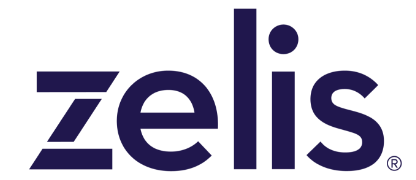
Takeda Pharmaceutical is expanding its prospects in hematology with a deal for rights to a drug advancing to pivotal testing in a type of blood cancer, giving the Japanese pharmaceutical giant an asset that could potentially compete with a blockbuster Bristol Myers Squibb product.
Takeda is getting elritercept, the lead drug candidate of Keros Therapeutics. Per terms of the deal announced Tuesday, the pharma company is paying $200 million up front for exclusive rights to the drug globally, except for China, where Hansoh Pharmaceutical holds rights. Takeda will assume responsibility for developing, manufacturing, and commercializing elritercept. Lexington, Massachusetts-based Keros could receive more than $1.1 billion in milestone payments, plus royalties from Takeda’s sales of an approved product.
Keros develops drugs that address dysfunctional signaling associated with the transforming growth factor-beta (TGF-beta) family of proteins, which play key roles in growth, repair, and maintenance of tissues, including the blood. The biotech’s drugs are engineered proteins that function as “ligand traps,” binding to ligands of the TGF-beta receptor to block signaling that inhibits red blood cells from developing into mature cells.
Elritercept is currently being evaluated in myelodysplastic syndrome (MDS) and myelofibrosis. Both types of blood cancers lead to anemia. While there are drugs available for treating MDS and myelofibrosis, elritercept would most directly compete against Reblozyl, a Bristol Myers Squibb drug that also works by binding to TGF-beta ligands. This drug, which has approvals for treating anemia in patients with MDS and the rare blood disease beta thalassemia, accounted for $1.2 billion in revenue in the first nine months of this year, a 78% increase compared to the same period in 2023.
In its annual report, Keros says clinical trial results for Reblozyl showed most responders were those with low dependence on blood transfusions to address anemia from MDS. The company believes there is a need to help MDS patients more broadly, regardless of their transfusion burden. Keros also sees potential applications of elritercept, known in earlier stages of development as KER-050, in other indications characterized by lower-than-normal levels of blood cells.
“KER-050 is designed to alter TGF-beta signaling pathways at multiple stages of hematopoietic differentiation in both red blood cells and platelets,” Keros stated in the report. “Consequently, we believe KER-050 has the potential to provide therapeutic benefit in a broader subset of patients with MDS that have varying defects in commitment, differentiation and maturation of multiple cell types found in blood.”
Elritercept is currently being evaluated in two Phase 2 trials, one in patients with very low-, low-, or intermediate-risk MDS and the other in patients with myelofibrosis. Keros said a Phase 3 clinical trial evaluating elritercept in adults with transfusion-dependent anemia with very low-, low-, or intermediate-risk MDS will begin enrollment soon. In preliminary results from the mid-stage studies, Keros has reported that the study drug led to increases in red blood cell and platelet production. Additional Phase 2 data are set to be presented at the annual meeting of the American Society of Hematology starting this weekend. Takeda was apparently impressed with the data it has seen so far.
“Building on the promising results elritercept has shown in the clinic to date, we look forward to continuing to explore its potential and to having the opportunity to potentially deliver it to patients with hematologic disorders,” P.K. Morrow, head of the oncology therapeutic area unit at Takeda, said in a prepared statement. “This agreement aligns with our goal of advancing therapies that may shift the treatment paradigm for underserved patient populations.”
Leerink Partners analyst Thomas Smith spoke with Keros executives, who told him the elritercept deal was competitive and drew multiple offers. They chose Takeda because they believe the Japanese pharma giant has the development and commercial infrastructure to maximize the asset’s value by pursuing broader opportunities than Keros could do on its own, including developing the drug as a first-line MDS treatment.
With elritercept heading to Takeda, Keros is left with two wholly owned programs: cibotercept for pulmonary arterial hypertension (PAH) and cardiovascular disorders, and KER-065 for obesity and neuromuscular diseases. Smith said Leerink expects Keros investors will remain focused on the Phase 2 test of cibotercept in PAH, which is expected to post preliminary data in the second quarter of 2025. This Keros drug could compete against Merck’s ligand trap drug Winrevair, which won FDA approval in PAH earlier this year. Smith sees opportunity for the Keros drug to show differentiation with dosing flexibility and better safety.
Public domain image by Flickr user SciTechTrend










